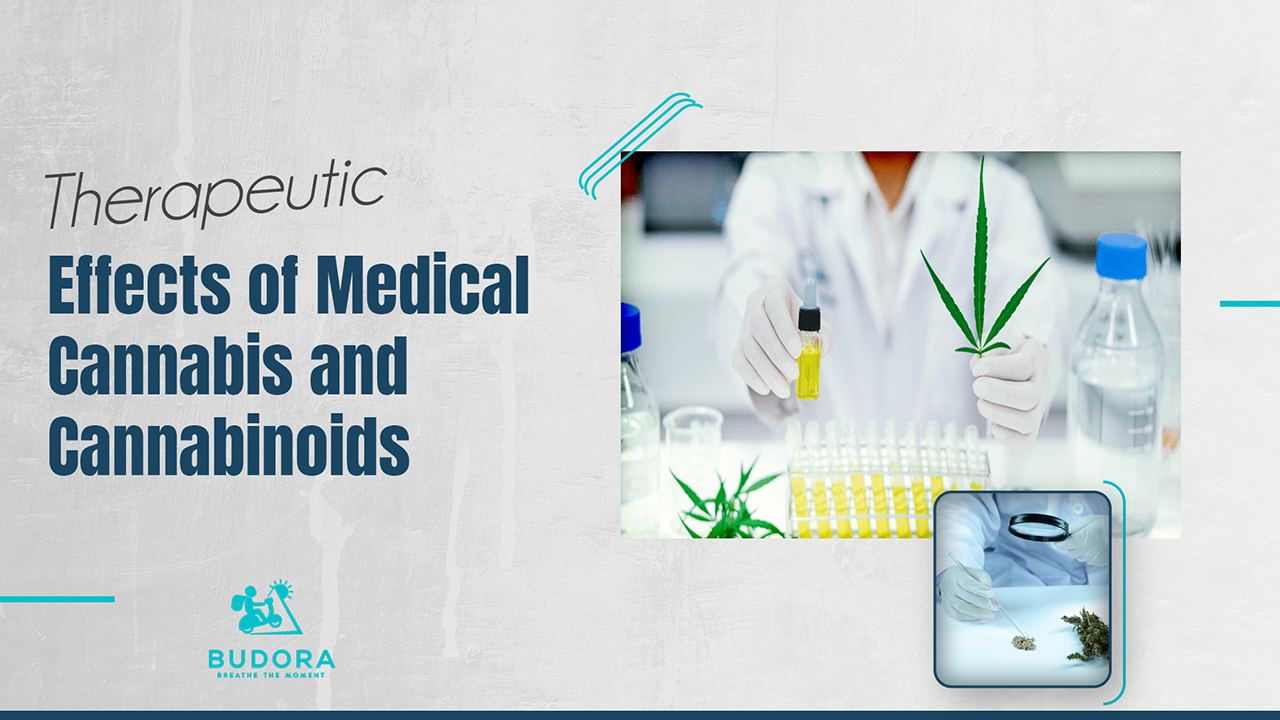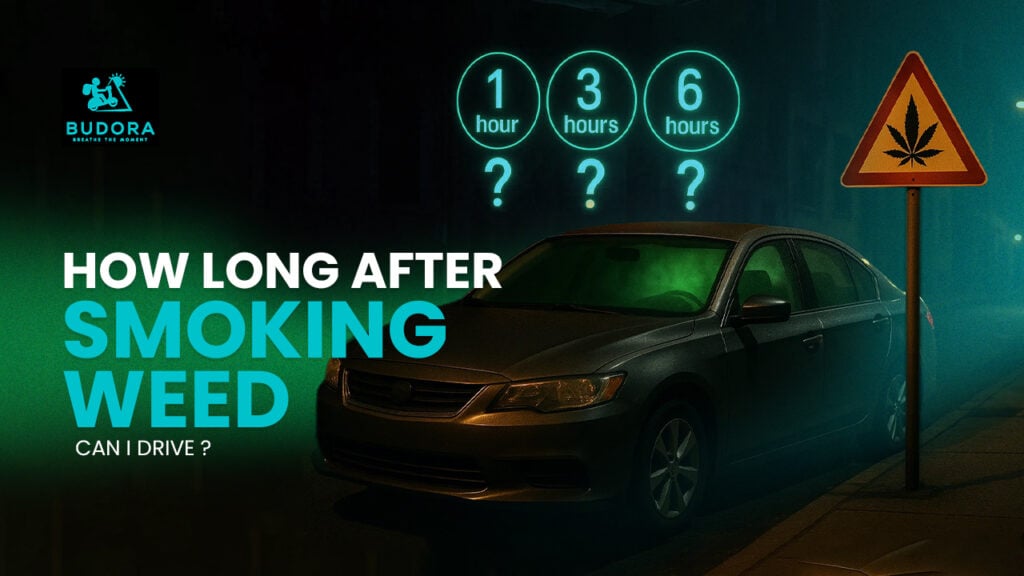

Therapeutic Effects of Medical Cannabis and Cannabinoids
- Budora
Cannabis, commonly known as medical cannabis, has been used for therapeutic purposes for thousands of years. The therapeutic effects of cannabinoids have gained recognition for their potential in treating various medical conditions. However, it wasn’t until 1985 that the FDA approved cannabis-derived treatments for chemotherapy-induced nausea and multiple sclerosis-related muscle spasticity. Since then, more than 30 U.S. states have legalized medical marijuana.
A recent poll revealed that 82% of registered voters support allowing doctors to recommend medical cannabis without legal concerns, while 89% favor policies permitting physicians to prescribe marijuana when it provides a therapeutic effect superior to conventional treatments.
Keynotes:
- Medical Cannabis & Its Therapeutic Benefits – Cannabis and its cannabinoids, THC and CBD, offer potential relief for chronic pain, anxiety, epilepsy, neurodegenerative diseases, cancer symptoms, and sleep disorders.
- FDA-Approved Cannabis Treatments – While whole-plant cannabis is still under regulatory review, the FDA has approved cannabis-based medications like Epidiolex (CBD), Marinol (THC), and Cesamet (Nabilone) for specific medical conditions.
- Accessing Medical Cannabis – To use medical cannabis legally, patients should consult a doctor, check local laws, obtain a medical cannabis card, and purchase from licensed dispensaries.
- Growing Acceptance & Future Research – With over 30 U.S. states legalizing medical marijuana, research continues to uncover its full potential as an alternative treatment for various health conditions.
What is Medical Cannabis?
Medical cannabis refers to the use of the cannabis plant and its active compounds, such as THC (tetrahydrocannabinol) and CBD (cannabidiol), for therapeutic purposes. While THC is responsible for the psychoactive effects of cannabis, CBD provides therapeutic benefits without inducing a high. Various studies suggest that cannabis interacts with the body’s endocannabinoid system (ECS), which regulates pain, mood, appetite, and other physiological processes.
Therapeutic Effects of Cannabis & Cannabinoids
The therapeutic effects of cannabis extend to a wide range of medical conditions. The two primary cannabinoids, THC and CBD, contribute to the following health benefits:
Pain Management
Cannabis has potent analgesic properties, making it effective in treating chronic pain, neuropathy, and arthritis.
Anxiety & Depression Relief
CBD-rich strains help alleviate anxiety and mood disorders by promoting relaxation and reducing stress.
Epilepsy & Seizure Control
FDA-approved CBD-based medications, like Epidiolex, are used to treat severe epilepsy syndromes.
Neuroprotection
Cannabinoids are being researched for their potential in slowing neurodegenerative diseases like Alzheimer’s and Parkinson’s.
Cancer Symptom Relief
Medical cannabis can help reduce chemotherapy-induced nausea, vomiting, and appetite loss.
Multiple Sclerosis & Muscle Spasticity
Cannabis has been shown to ease muscle stiffness and spasms in MS patients.
Sleep Disorders
Certain strains promote deep and restful sleep, making them beneficial for insomnia.
Cannabis can be consumed in various forms, including smoking, vaping, edibles, honey oils, tinctures, and topicals, depending on the condition being treated.
FDA Review of Medical Cannabis
The FDA has approved specific cannabis-derived and synthetic cannabinoid-based medications, but whole-plant cannabis remains under regulatory review. Approved cannabis-based drugs include:
- Epidiolex (CBD) – Used for rare forms of epilepsy.
- Marinol & Syndros (THC) – Approved for chemotherapy-induced nausea and appetite stimulation in AIDS patients.
- Cesamet (Nabilone) – A synthetic cannabinoid used to manage nausea and vomiting caused by chemotherapy.
Despite these approvals, whole-plant cannabis is not yet fully recognized as an FDA-approved medical treatment. Patients should consult healthcare professionals before considering medical cannabis for their condition.
How to Access Medical Cannabis
If you’re interested in experiencing the therapeutic effects of cannabis, follow these steps:
- Consult Your Doctor – Discuss your symptoms to determine if medical cannabis is a suitable treatment option.
- Check Local Laws – Research your state or country’s regulations regarding medical cannabis access.
- Obtain a Medical Cannabis Card – In many states, patients need a prescription or medical cannabis card to purchase legal products.
- Visit a Licensed Dispensary – Choose a reputable dispensary offering lab-tested cannabis products tailored to your medical needs.
Conclusion
The therapeutic effects of medical cannabis and cannabinoids have gained widespread acceptance as an alternative treatment for various health conditions. While ongoing research continues to uncover its full potential, many patients have already experienced significant relief through medical cannabis. If you’re considering cannabis for medical use, consult a healthcare professional and explore legal, high-quality options available in your area.
Ready to Experience the Therapeutic Benefits of Cannabis?
Discover top-quality medical cannabis products for pain, anxiety, and overall well-being.
Like this article?
Budora
OTHER ARTICLES YOU MAY LIKE



